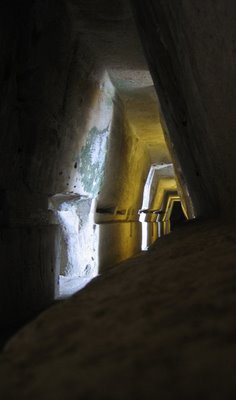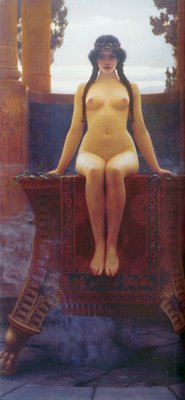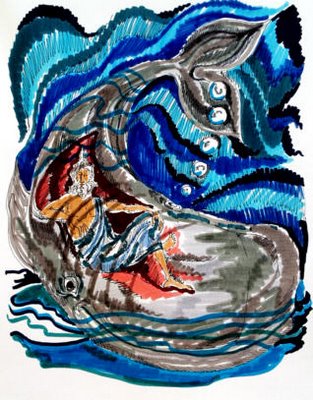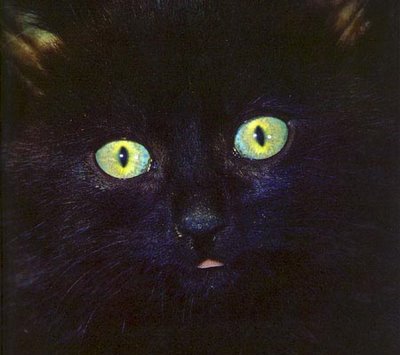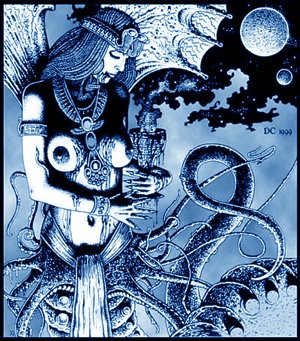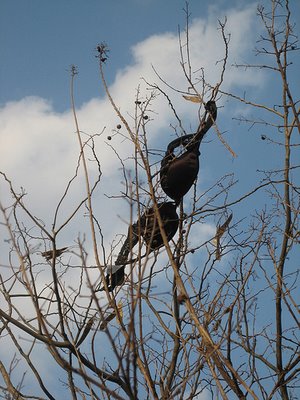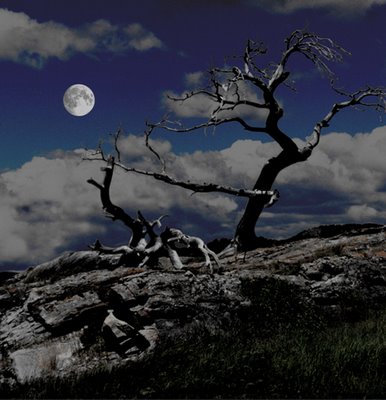Talking Cure
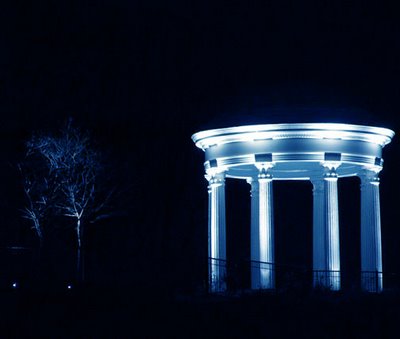
My Private Delphi: Thus the old sure rituals, dead for seeming millennia, live on within. Does the mythographical poet grow in proportion that he or she harrows the roots of song, extending to the degree that the underground cathedral is charted, lamped, hymned? And are such ventures these days necessarily personal, discrete, individual, singular corridors of a vast labyrinth the tribe may one day recognize as equally valid and important adventures into the new world of our oldest dreams? Perhaps.
This may not be adventuring at all, just the same old rope-a-trope of savoring the same old buckets of hauled strange sweet deep blue, one older guy’s fascination with a process repetitive as wanking or dreams? Of the former, need I describe the iron channels of fantasy, the fascination spinning the same old events & feminine topographies? ‘Twould seem like Lacanian porn.
But of the latter, isn’t it interesting (sez the archon of repetitive motions) how poetry’s deep work in language is a mimesis, is an identical twin to dream work, which Freud describes thus in “Wit and Its Relation To The Unconscious”:
***
“A structure of thoughts, mostly very complicated, which has been built up during the day and not brought to settlement - a day-remnant -- clings firmly even during night to the energy which it had assumed -- the underlaying center of interest -- and thus threatens to disturb sleep. This day remnant is transformed into a dream by the dream-work and in this way rendered harmless to sleep. But in order to make possible its employment by the dream-work, this day remnant must be capable of being cast in the form of a wish, a condition that is not difficult to fulfill. The wish emanating from the dream-thoughts form the first step and later on the nucleus of the dream.”
***
Resonates with me, though I don’t know any more if I qualify by an contemporary standard for the title of poet: I sit in a white recliner in our living room at 4 a.m. in a pool of plush lamplight with the dark world everywhere around me, sleeping, twisting, wandering in Dis; I read a while the sources du jour, Lacan or Freud or Kerenyi or Keats or Blake or the Brothers Rees or Hillman or Graves or whowhatever; the words I read stir words in my mind, a vague feeling like an undertow of a thought; I put pen to paper and ride out where that verbal feeling wills, finding great pleasure in the saying. No wonder sexual pleasure is often celebrated there. No wonder I call it a vowel movement. A verbal libido has been satisfied, the gods have spoken, I can go on with my day, which is the conscious inverse of sleep. Poetry is the bright brother of the dream, identical in procedure if fraught from difference in the purpose (for the poem is when I am most aware, where the dream ensures I fold deepest into sleep).

A talking cure. Here’s a psychological read on that procedure from the website www.emotionalprocessing.org:
“One of the shared procedures of nearly all psychological therapies is that the patient talks, shares, explores or explains. Verbalisation is central. Patients talk and therapists listen. This takes us back to the beginning of psychological therapy. In 1880, Breuer told Freud about the treatment of a woman with hysterical symptoms, involving paralysis, fits and states of mental confusion. His treatment had 'allowed him to penetrate deeply into the causation and significance of hysterical symptoms' (Freud 1910). Breuer discovered that the patient could be relieved of her symptoms by expressing what was troubling her whilst under hypnosis. Freud and Breuer worked together producing a preliminary communication 'On the psychological mechanism of hysterical phenomena' in 1893 and a book 'Studies in Hysteria' in 1885. Their method was referred to as the "Cathartic Method".
“The patient herself referred to this process as her 'talking cure'. Freud later dropped the hypnotic element of the therapy, concentrating on talking. However, Freud regarded this theory as 'unpretentious' and saw the cathartic method as a transition to 'psychoanalysis proper', where the emphasis shifted from expressing thoughts and feelings to uncovering the hidden unconscious conflicts underlying symptoms. Conscious insight became the primary goal of psychoanalysis rather than catharsis.
“The idea of catharsis can be traced back to Aristotle's definition of a tragedy as being a dramatic work 'with incidents arousing pity and fear, wherewith to accomplish its catharsis of such emotions'. Experiencing powerful emotions in vicarious form could purge, purify, release or morally re-educate those watching the tragedy. Milton, Montaigne, Boswell and other literary figures refer to this concept of 'purging the mind of those (pity and fear) and such life passions, that is to temper and reduce them to just measure' (Milton). The Greek word katharsis comes from kathairein (to purge) and from katharos (pure). The meaning of purging the stomach or the bowels of impurities with purgatives and laxatives has been a major medical sense in which the word has been used over the centuries. It has been Freud's writings that have further developed the psychological concept of purging emotions, originally proposed by Aristotle.
“The idea that expressing our feelings is healing and restorative, whilst bottling up, suppressing or hiding them is a danger to our health, is a widely held belief in the west. It is common for psychological therapists to hear patients talk of the relief of sharing their feelings and to see many examples of how unearthing and talking about traumas and hurts, previously suppressed, can bring much relief to patients. Although different psychological therapies may have varying understandings of how expressing emotions may operate, most endorse or encourage expression. Some therapies (Gestalt, Reichian, Primal Scream) emphasise the element of discharging affect; others emphasise the explanation or understanding of events involved in emotional expression (emotional focusing, person centred therapy); others the act of putting emotions into words (structured guided therapy); others exposure to noxious memories, affects or emotional stimuli (exposure therapy); and yet others as a vehicle for reconstructing cognitions (rational emotive therapy) or reconstructing relationships (object relations therapy).”
“In 'Expressing Emotions' 1999 Kennedy-Moore & Watson proposed a venting hypothesis which refers to the idea that expressing emotion reduces negative emotional experience and psychological arousal, assuming that the bigger the expression of distress the greater the relief. The beneficial effects are immediate and are the direct result of expression rather than operating in a cognitive or interpersonal level. This is presented as a sort of operationalisation of the catharsis concept, allowing it to be experimentally tested. The emotional venting hypothesis attempts to capture the essence of the 'hydraulic model of emotion' which is that it is important to 'let emotions out' rather than 'bottle them up'.
“The venting hypothesis appears to have been particularly applied to the expression of anger. The Kennedy-Moore & Watson review in the book (1999), review by Bushman (2002) and the influential writings of Tavris (1984, 1989) suggests that at the experiential, behavioural or physiological level, short term expression of anger does not bring relief but often the contrary - it heightens tension. The title of the chapter in which Kennedy-Moore & Watson propose the venting hypothesis is 'The myth of emotional venting' so the overall purposes of operationising catharsis seems to enable it to be disproved.
“Another stream of debate about catharsis comes from a different perspective; an anthropological approach in which ritual was argued (by some such as Malinowski) to help individuals process cultural losses and uncertainties: whereas others (such as Evans-Prichard and Levi-Strauss) disagreed. Similar to the venting controversy, it was argued that vicarious or symbolic events leading to emotional feeling could be just as destructive as they could be purging.
One of the problems with the venting hypothesis is whether it is an adequate operationalisation of catharsis. It is certainly equated with catharsis (Kennedy-Moore & Watson 1999) and conclusions about the ineffectiveness of venting are taken to apply to the ineffectiveness of catharsis. In the psychotherapy literature, catharsis applies to the reliving of significant traumatic events, often from childhood, which have not been adequately emotionally processed and which are addressed during the process of therapy. These are significant personal events re-lived or re-experienced, often with strong emotional reactions. Patients may feel immediate relief in one session but often require a number of sessions in order to fully work through the event. Therapists may instruct patients that they may feel worse at first, before the material is properly explored and while further memories are being retrieved, but that over a period of time, there will be resolution and relief.
“Venting, whilst not excluding this, seems to refer to more short term daily hassles rather than long term significant personal events. It is not set within a psychotherapeutic context, but applies more to everyday living and experimental psychology paradigms. Venting differs from catharsis in being closer in time to the trigger event (hours rather than years), less severe (an argument rather than say sexual or physical abuse) and with no reference to it having previously been suppressed, not dealt with, or inadequately processed, probably over a period of years. It is not surprising that the experimental psychology literature on venting can be at variance with the psychotherapist's understanding of catharsis. Catharsis may still be relevant as a concept if attention was paid to what factors make an emotional discharge therapeutic and what factors make it unhelpful or non-therapeutic.
***
Ventings, once sacred, increasingly profane, the god’s mouth up through the sibyl’s throat, wild, incoherent, a text which must be interpreted by the priest/analyst, transcribed for general consumption: am I only making myself more conscious, or getting kicks from my past (the catharsis), or healing somehow that part of the world I’ve burrowed down into?

OK. So let’s return to the Delphic procedure, picking up in Pollard now what happens following the ritual descent and lustration in the hallows of the oracle:
“Before the Pythia was admitted to the shrine a goat was led in by the priests and sprinkled with holy water to see how it would react. If it shivered properly it was sacrificed and the seance was allowed to go forward.
“Arrived in the sanctuary the Pythia mounted the tripod, itself an extraordinary and unique procedure whose significance has been much discussed. Probably little credence can be given to the comic poet Aristophanes’ vulgar suggestion in the Plutus that the Pythia conceived the spirit of Apollo while so seated, though Doro Levi has produced evidence from ancient Crete to show that the tripod set over a fire for the purposes of sorcery came to be regarded as a symbol of mantic power.
“Next she prophesied, according to the Homeric Hymn, ‘from the bay’, whatever the precise significance of the phrase. Whether she actually chewed the plant, in order to induce some form of stupefaction, always assuming that the bay can stupefy, as Sophocles implies in a fragment from a lost play which contained the advice, ‘After eating bay be careful to bite your lip’, i.e. to say, keep your secrets to yourself, or whether she merely functioned in close association with the god’s sacred tree, are questions which we cannot answer. Possibly the custom varied over the centuries. Later the plant was apparently burnt in order to give off incense, if that is what Aristophanes meant in the Plutus by ‘shaking the bay.’
“Squatting on the tripod the Pythia awaited the moment of divine inspiration in a mood which doubtless varied with the temperament of each. Plutarch records how one unfortunate woman, when forced to prophesy against her will, suddenly went mad. Her frenzied behavior put the priest to flight, and so overwhelming was her distraction that she died. That few Pythias were so powerfully moved seems probable but that the majority regarded themselves as divinely inspired there seems no reason to doubt. Even now it is hard to be at Delphi and remain a sceptic, and in the days of Croesus few men were.
-- -- John Pollard, “The Delphic Oracle” in his Seers Shrines and Sirens: The Greek Religious Revolution in the Sixth Century BC

Now there’s something drear about this Sibyl, wrested from her former role as vestal of the goddess (albeit, perhaps, a sexually eloquent one) & hauled by the dread bright god into a temple now His & forced to squat over the old flame & speak to Him, or from Him ... there is the old patriarchal crime to this -- one for which there is a great amount of justifiable and liberated anger from women -- yet my reading is different, as that of the emergence of consciousness and what it wrests from darkness as its true voice, the true source of its power. Shade my reading from my side of the sexual difference between genital men and women, perhaps; I’m willing to take a punch in the gut for speaking from my own heart.
Anyway, to emulate the procedure, which I see everywhere in my various rope-a-dope poetics (those metaphors of: sacred well, immrama, feminine upwelling, Cape Blue, the crannog, liturgicals of the dark, shamanic letters to a migrained poet, wheels of Mannanan, now Queequeg’s coffin ...) I squat myself and vent:
TALKING CURE
October 12
My tripod is this white
writing chair’s three
domains of wish
and fancy and dread,
perched at 4 a.m.
over a world
dark and breathing
deep. It is a pagan’s
empty coffin whose
barnacle-encrusted
ribs I ride from the
end of Ahab’s tale
to its next. It is
a feral woman’s heat
I press my hips into,
words spouting
on my lips as she
sighs Yes from the
beds of history
at the silky bottoms
of all seas. Thus
I name my wounds
and praise them
for their roasting
ghosts, sometimes lust-
addled, other times
frothing at the
lips of whiskey’s toast,
always naming in
another way that
old far shore where
I was beached for
good, spat out from
some Delphic womb
to make
my way along
the strand-loom
of a life. This
is my talking
cure, dowsing out
and down the
meres and mares
and mamas of a blue
sear’s solder,
wombing back
and forward this
imperfect ever-healing
day. My Delphi is
a dolphin’s dick
still singing in
Queequeg’s coffin,
upwelling what’s
inside the wave’s
cerulean derange
inside my words,
as that box of ancient
ribs is housed inside
my own. The very
ocean’s singing bone’s
inside my dolphin’s
sire, Manannan’s rude
red sacral pen I mean.
I write on and on
insaned by gods
no longer almed
by day, my song
a looped symposium
of nereid grapes
crushed and quaffed
between basaltic knees.
A moony Gaelic
diatribe moves
my mouth inside and
back to a Sidhe-drenched,
wild South my old
pal Queequeg would
be proud of, exactly
where he’s fit to
stand and hurl
harpoons dead on
into the center
of desire, those
red repasts
and pinker gluts
of the animal
we are most far from
yet still ride.
Thus I heal the worlds
with blue-curved
words -- in the writing
at least, and lasting
enough to rise
from this chair
with keel and ballast
sure in darkness
enough to sail
a scalding
godless day.
